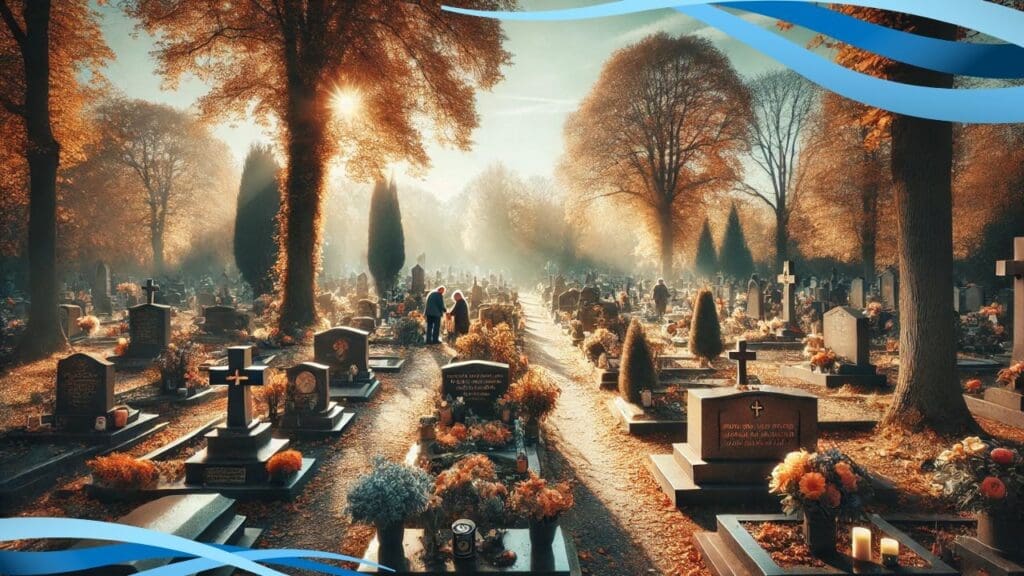On the Day of the Faithful Departed, our Catholic community comes together to honor those who have gone before us by visiting cemeteries, praying and reflecting on the hope of resurrection. In this article, Jean Rolex, CM, explores the importance of these moments and how, as good Vincentians, we can remember our loved ones through works of charity and mercy. Discover the initiatives and simple gestures that can turn this day into an occasion of love, faith and service to others.

After celebrating the Solemnity of All Saints, our Catholic Church strongly invites her children to commemorate all the faithful departed. That is, to turn our gaze to the many faces who have gone before us and who have finished their earthly journey[1] . As tradition requires, many Catholics these days visit cemeteries to pray for their loved ones who have left them. These visits to cemeteries express, among other things, affection, respect and homage. It is a very simple gesture but one that expresses love and hope in the resurrection of the dead. By visiting the graves of their loved ones and observing the different mementos that are piled up in front of them, one discovers how they lived, what they loved, what they feared, what they hoped for and what they hated. The graves are almost a mirror of their world .[2]
So, as Vincentians, on this special day let us honour our deceased by visiting their graves, praying for them and reflecting on death, a subject that concerns us all. The reason is because it is a reality foreign to our nature, the fruit of the devil’s envy (Wis 2:23-24). The fear of death is deeply rooted in every human being and begins to manifest itself in a confused way as soon as a child reaches the age of reason and knowledge. In reality, death concerns each one of us, it concerns man in every age and in every place. Faced with the mystery of death, we all, even unconsciously, look for something that invites us to hope, a sign that gives us consolation, that opens up some horizon, that also offers a future[3] . It is precisely by going to our cemeteries to visit our loved ones that “it is a journey marked by the hope of eternity”.
Although our human condition makes us afraid of death, we cannot accept that all the beautiful and great things we have achieved during a lifetime should be erased suddenly, that they should fall into the abyss of nothingness. But Jesus is our guarantee. He conquered death by his death and promised eternal life to all those who ate his flesh and drank his blood (cf. Jn 6:51). The proclamation of the resurrection and eternal life is, to my mind, a joyful and hopeful proclamation. The God of Jesus Christ in whom we believe is a God of the living and not of the dead. Our life is in his hands. From him we go forth and to him we shall return. And our final encounter with someone who has revealed himself to us as “all love” must be good.
A terminal patient asked his Christian doctor, “Doctor, tell me, what is on the other side of death?” The doctor told him, “I hardly know anything about what is on the other side of death. I only know one thing: my Lord is there, and that is enough for me”. What a relief to know that our Lord is waiting for us.
Honouring our deceased also means praying with affection and love for them. It is also an invitation to renew with courage and strength our faith in eternal life; indeed, to live with this great hope and to bear witness to it to the world. Indeed, do not cease to pray and offer Masses for your deceased. Praying for them is a work of mercy. Let us learn from the Master of masters who visited the tomb, wept and prayed to the Father for his friend Lazarus (cf. Jn 11:28-37). With this gesture, Jesus Christ, evangeliser of the poor, becomes the model par excellence of this work of mercy.
The deceased have no one but us to pray for them. They depend on our prayer and that of the Church. Therefore, do not forget your deceased under any pretext. Prayer, St. Thomas Aquinas reminds us, “is infallible if it asks for something necessary for eternal salvation”. So, pray for your deceased.
Honouring our deceased also involves some charitable works that are proper to a Vincentian. Vincentian works are those works inspired by St. Vincent de Paul, known for his dedication to the poor and marginalised. These works are intended not only to honour the memory of the deceased, but also to reflect the spirit of compassion and service that characterises Vincentians. Service that is based on faith, prayer, humility and respect. What Vincentian works could we do after visiting cemeteries?
Below I suggest some simple works:
Food Drive: Vincentians, on All Souls’ Day, may hold a food drive to collect food and basic hygiene items to distribute to people in need in honour of the deceased.
Supporting the sick: This day could be a time to visit hospitals and nursing homes, offering companionship and support to the sick and elderly, remembering those who have passed away.
Caring for “the common home”, the environment: In honour of the deceased, Vincentians could dedicate this day to planting trees and caring for vegetation. Trees help to purify the air and maintain an ecological balance.
These are simple works, but they can make a difference.
By Jean Rolex, CM
[1] Benedict XVI (2011). General Audience of 2 November. Retrieved from https://www.vatican.va/.
[2] Ibid,
[3] Cantalamessa, R. (2001). Cast out the nets. Reflections on the Gospels, Cycle B. Edicep, Valencia.


From my heart,thank you!
I have beautiful memories of my time with you,1953-58. (St. Joe’s and the Internal Seminary)